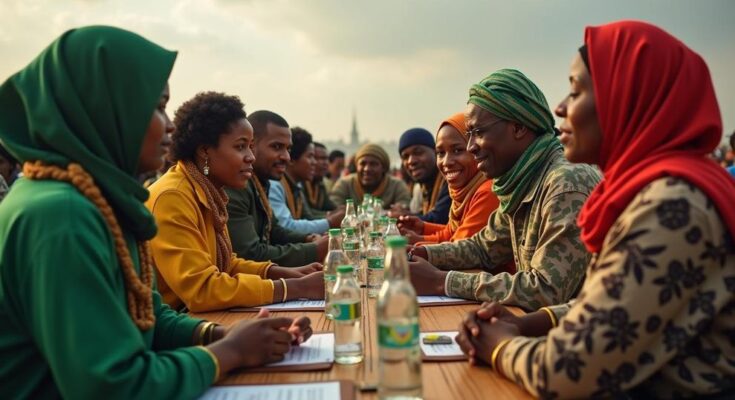Eritrea hosted a trilateral summit with Somalia and Egypt focusing on confronting interference from Ethiopia amid escalating regional tensions. They discussed strengthening Somalia’s capabilities to combat terrorism, while addressing grievances surrounding recognition of Somaliland and pressure from Egyptian military support. Despite hostile rhetoric, an immediate military confrontation appears unlikely due to various internal challenges.
Eritrean President Isaias Afwerki recently convened a trilateral summit with President Hassan Sheikh Mohamud of Somalia and President Abdel Fattah el-Sisi of Egypt in Asmara on October 10. The leaders discussed strategies to “confront interference in the internal affairs of the countries of the region under any pretext or justification” as noted in their joint statement following the meeting. The summit focused on enhancing cooperation to strengthen Somali state institutions, enabling Somalia to effectively combat terrorism, safeguard its borders, and maintain territorial integrity. This meeting occurs amidst escalating tensions between these nations and Ethiopia, particularly following Ethiopia’s recent memorandum of understanding with Somaliland, a self-declared republic that Somalia views as integral to its territory. This development has aggravated relations, with Ethiopia proposing to acknowledge Somaliland’s independence in exchange for leasing a coastal strip for a naval base, which has sparked outrage in Somalia, leading to threats to expel Ethiopian forces stationed in the country for fighting Al-Shabaab unless the MoU is annulled. Egypt has seized this opportunity to increase pressure on Ethiopia, especially due to tensions over the Grand Ethiopian Renaissance Dam (GERD), which Cairo perceives as a threat to its water supply. Following a military cooperation agreement with Somalia in August, Egypt has supplied weapons to Mogadishu and considered deploying troops to replace Ethiopian forces. Although Eritrea previously aligned with Ethiopia during the Tigray civil war, recent dynamics have strained those relations as Afwerki reportedly opposed the peace agreement struck in November 2022 between the Ethiopian government and the TPLF. He remains wary of Ethiopia’s aspirations toward Eritrea’s ports, lost during Eritrea’s independence. Experts suggest that despite the intense rhetoric, an immediate military confrontation is unlikely, as both Somalia and Egypt face their own internal challenges, and Eritrea is still recovering from its war. “What everyone is trying to do is really to posture,” remarks Omar Mahmood, a senior analyst at the International Crisis Group. The current scenario indicates a return to a precarious state, characterized by a “no war, no peace” situation that has emerged following the 2018 rapprochement, which has now faltered.
The dynamics surrounding Eritrea, Ethiopia, and Somalia are rooted in a complex history of conflict and territorial disputes. Ethiopia and Somalia have been embroiled in clashes over Somaliland’s recognition and Ethiopia’s ambitions regarding access to Eritrean ports. Additionally, Egypt’s long-standing concerns regarding its water resources, particularly with respect to the GERD, have intensified its interest in supporting regional alliances against Ethiopia. The geopolitical tensions in this region are exacerbated by the ongoing domestic challenges faced by Ethiopia, Somalia, and Eritrea, which are intertwined with external maneuvers by nations such as Egypt.
In summary, the trilateral meeting between Eritrea, Somalia, and Egypt symbolizes a concerted effort to counter perceived Ethiopian aggression and support Somalia’s stability amid rising tensions. Despite substantial rhetoric indicating a willingness to confront threats, the region is hindered by internal weaknesses and ongoing conflicts that may prevent immediate military confrontation. As geopolitical maneuvering continues, analysts remain cautious about predicting direct clashes, emphasizing the importance of diplomacy over military action for the time being.
Original Source: www.theafricareport.com




